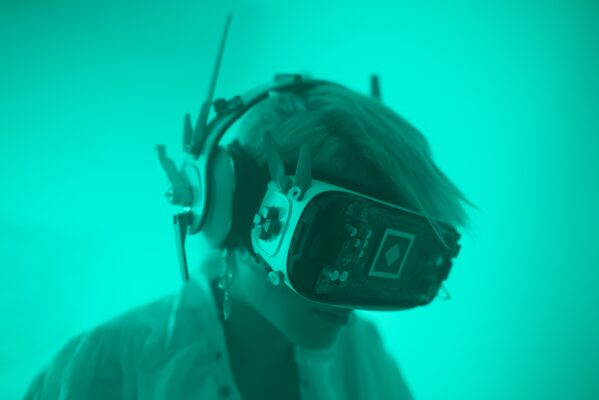
If you were on the internet in 2021 like most of us were thanks to the pandemic, then you know how crazy the hype around the metaverse was. Touted as the next big thing in the tech world, the metaverse promised an entirely immersive virtual world including futuristic avatars and wearable devices. It was back in October 2021 when Facebook made the announcement of changing its name to ‘Meta’ reflecting upon its goals to expand from a social media giant into the metaverse. Cut to 2023 where it looks like Meta’s dream has lost its momentum if not come to a complete stop. What was called by Mark Zuckerberg the ‘next chapter of the internet’ finds itself lost somewhere in the noise with little to no interest amongst the general public. So, is the metaverse dying?
Zuckerberg pulls the plug

Since 2021 when Zuckerberg announced the Facebook rebranding to Meta, the company has lost a big chunk of money. As per reports, meta lost as much as $20 billion as of December 2022 from its ‘Reality Labs’ segment since its start in 2021. The losses kept piling up to the point where investors started raising concerns about Mark’s approach to this business expansion. Brad Gerstner, whose Altimeter Capital fund owns hundreds of millions worth of Meta shares wrote an open letter to Mark Zuckerberg stating that the company had lost investors’ confidence. People and organizations with major stakes in the company expressed concern that Zuckerberg had lost the focus of his company’s core social media empire to pivot onto a concept that may take years to come to fruition.
As a result, Mark Zuckerberg had to issue a statement revealing that the metaverse was not the majority of what the company was doing. Mark revealed that about 80% of Meta’s investments are driven towards the core business and only about or less than 20% of its investments went towards Reality Labs. Meta’s core businesses include Facebook, Instagram, and WhatsApp Messenger. Mark then added that the vast majority of what Meta does will continue to go towards social media until the ‘metaverse becomes a larger thing’ Zuckerberg was insistent about the fact that communication in 2023 will be different than the computing devices used today. The Meta head had gone on record and stated that he is ‘very optimistic’ about the direction Meta was headed in. Well, that was until 2023 when the AI race took an interesting turn and Meta aims to strike gold in that arena.
It might have not come with major announcements or discourse on the internet, but Mark Zuckerberg has quietly pulled the plug on his metaverse dream. The Meta head quietly buried his ambitious project and redirected his attention towards artificial intelligence. Failures are quiet and success makes all the noise stand true in this case. Chatter on the web suggests that issuing a public announcement would force Mark to admit that he was wrong, which is a big price to pay amidst already plummeting stock value and backlash over mass layoffs. On the other hand, Meta’s attention shift to AI reflects upon the unparalleled potential of the technology to revolutionize the world. So what exactly is Meta’s focus now? Here’s what Mark Zuckerberg shared in a post on February 27 –
“We’re creating a new top-level product group at Meta focused on generative AI to turbocharge our work in this area. We’re starting by pulling together a lot of the teams working on generative AI across the company into one group focused on building delightful experiences around this technology into all of our different products. In the short term, we’ll focus on building creative and expressive tools. Over the longer term, we’ll focus on developing AI personas that can help people in a variety of ways. We’re exploring experiences with text (like chat in WhatsApp and Messenger), with images (like creative Instagram filters and ad formats), and with video and multi-modal experiences. We have a lot of foundational work to do before getting to the really futuristic experiences, but I’m excited about all of the new things we’ll build along the way.”
Meta Platforms Inc recently released a new large language model to researchers. The model, titled ‘LLaMA’ is intended to help scientists and engineers explore the application of AI such as answering questions and summarizing documents. The new model has been developed by Meta’s Fundamental AI Research (FAIR) team which was established nearly a decade back in September 2013.
LLaMA is not ChatGPT or Bing Search alternative, which means it is not a system that users can hop on and have conversations with. Rather, it is a research tool which Meta believes will democratize access to AI in a fast-changing field. In simple terms, LLaMA has been made public to help experts dish out problems with AI language models in general. In recent times, there have been reports about Microsoft’s Bing search AI giving passive-aggressive and factually incorrect responses. LLaMA has been publicised to help solve issues like those.
Meta announced its new language model in a blog post writing – “We believe the entire AI community — academic researchers, civil society, policymakers, and industry — must work together to develop clear guidelines around responsible AI in general and responsible large language models in particular, given their centrality in many downstream language applications. A much broader segment of the AI community needs access to these models in order to conduct reproducible research and collectively drive the field forward.” This means that the company’s focus has definitely shifted towards the AI race from the metaverse.
While the metaverse has been put on the sidelines by Mark, the tech leader was quick to realize the paradigm shift with AI technology and pivoted immediately. In the general context, the metaverse could be signed off as Zuckerberg’s expensive fling that ran its course. However, what makes us curious now is the future of virtual reality which was the backbone of the metaverse.
Despite all the flashy and at times downright dystopian demos of VR implemented in the metaverse, Zucklerberg’s dream did not catch on as he would have expected. So, does the failure of the metaverse actually affect development in the VR space? We’d say yes, but only partially. Here’s why –
The Future of VR

While the metaverse vision relied solely on VR technologies to create an immersive experience for people in a digital dimension, the technology itself was never chained to that limitation. VR as a concept has been around since the mid-1980s when Jaron Lanier, founder of VPL Research started working to develop gear including a goggle and gloves to experience virtual reality. However, the VR headsets as we see them now in the mainstream were introduced by Oculus VR and are the brainchild of Palmer Lucky.
VR has been a growing field in the world of tech for over a decade now and has the potential to revolutionize various aspects of our lives be it entertainment, healthcare or education. The main reason why VR gained mainstream popularity is due to the availability of affordable VR headsets right now that allows people to have an immersive experience at a pocket-friendly price. I remember buying my first-ever VR headset for under Rs 2K from Amazon back in 2019 and watching Avengers: Endgame in 3D, it was an experience like no other!
Another reason why VR has shaped up to become the next big thing is due to its mindful implementation in gaming. VR unlocks the next level of immersive gaming allowing players that they are inside the game. There are a number of companies right now in the world which are working specifically on developing VR-centric games that are impressive, to say the least. VR has the potential to transform the gaming industry in its entirety. Players won’t experience the game as a character sitting in front of a screen but feel like they’re inside the game. This high level of immersive gaming experience could revolutionize gaming and change the way we enjoy games altogether.
Another end of the spectrum in entertainment. The theatrical exhibition of films has taken a hit in the past few years as the audience shifts to OTT platforms for their entertainment. This hints that the audience can and will adapt to changing patterns of consuming cinema including watching in VR. In the future, films could be produced specifically to cater to the VR audience creating an immersive experience of storytelling like no other. This level of stimulation will undoubtedly hook the movie-going audience who are always on the lookout for something new. VR could also help a lot when it comes to education as students could visit monuments across the world in virtual reality or learn about the human anatomy wearing a VR headset.
In conclusion, I would like to reinstate the fact that VR technology has been around well before the inception of the metaverse. While the metaverse depends on VR to thrive, no such limitations are present in VR technology. While the future of the metaverse looks dark, the same cannot be said for VR.

